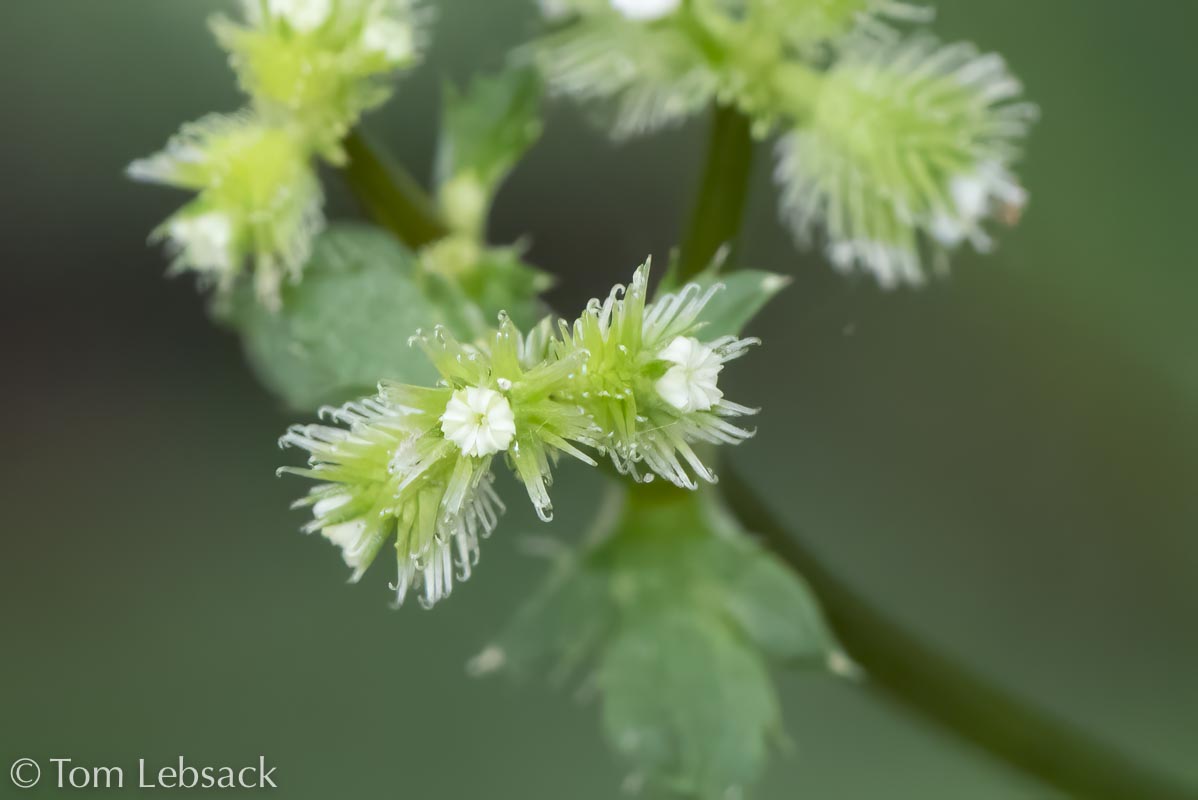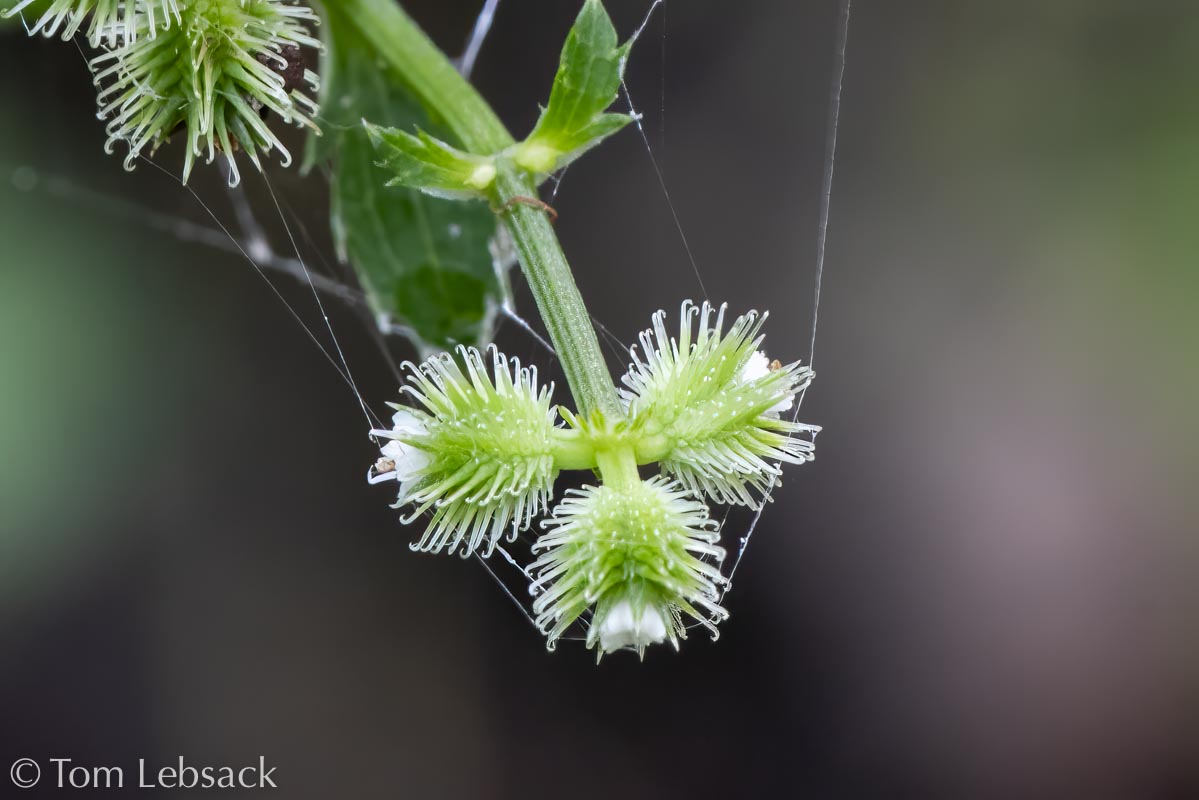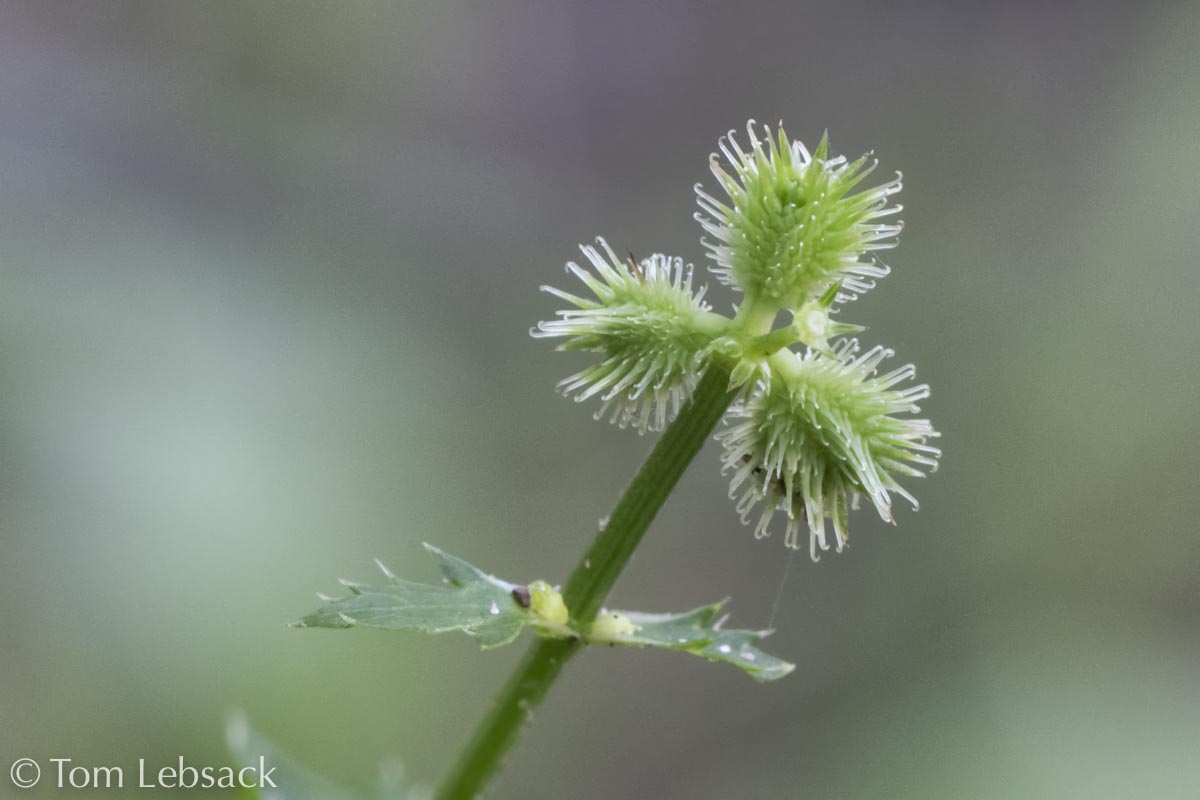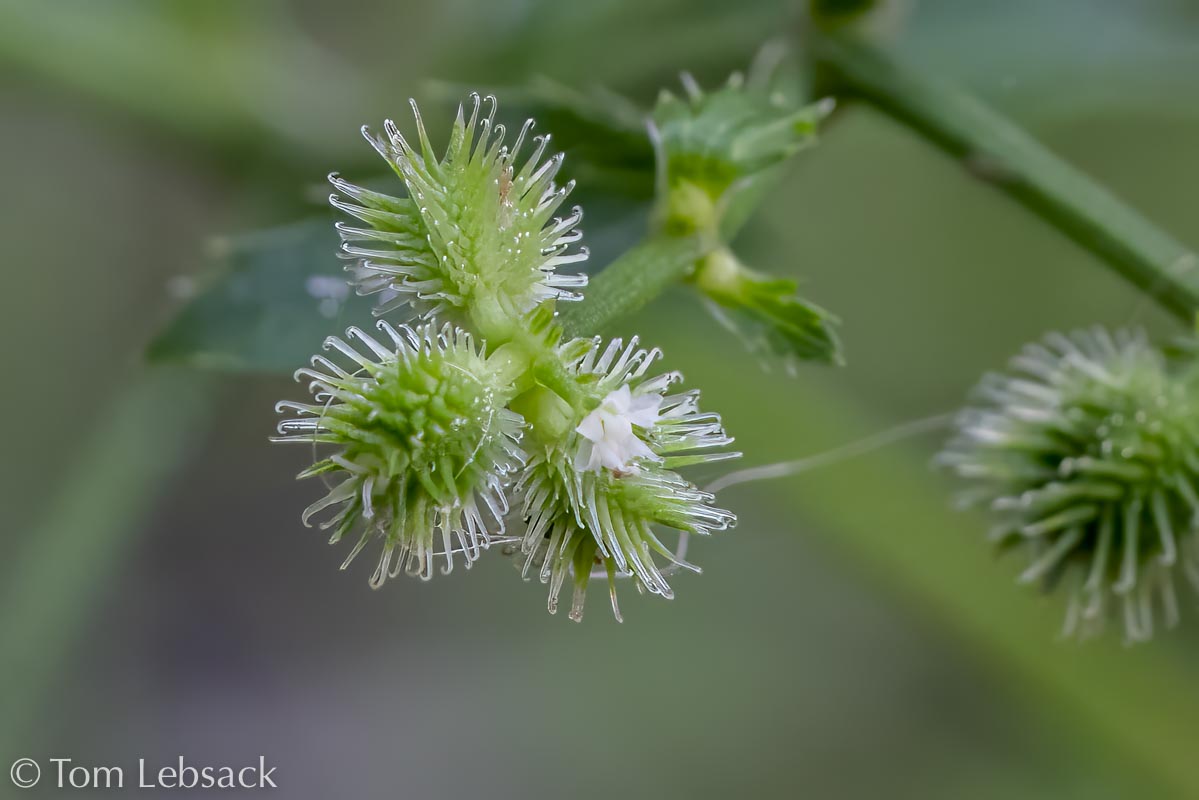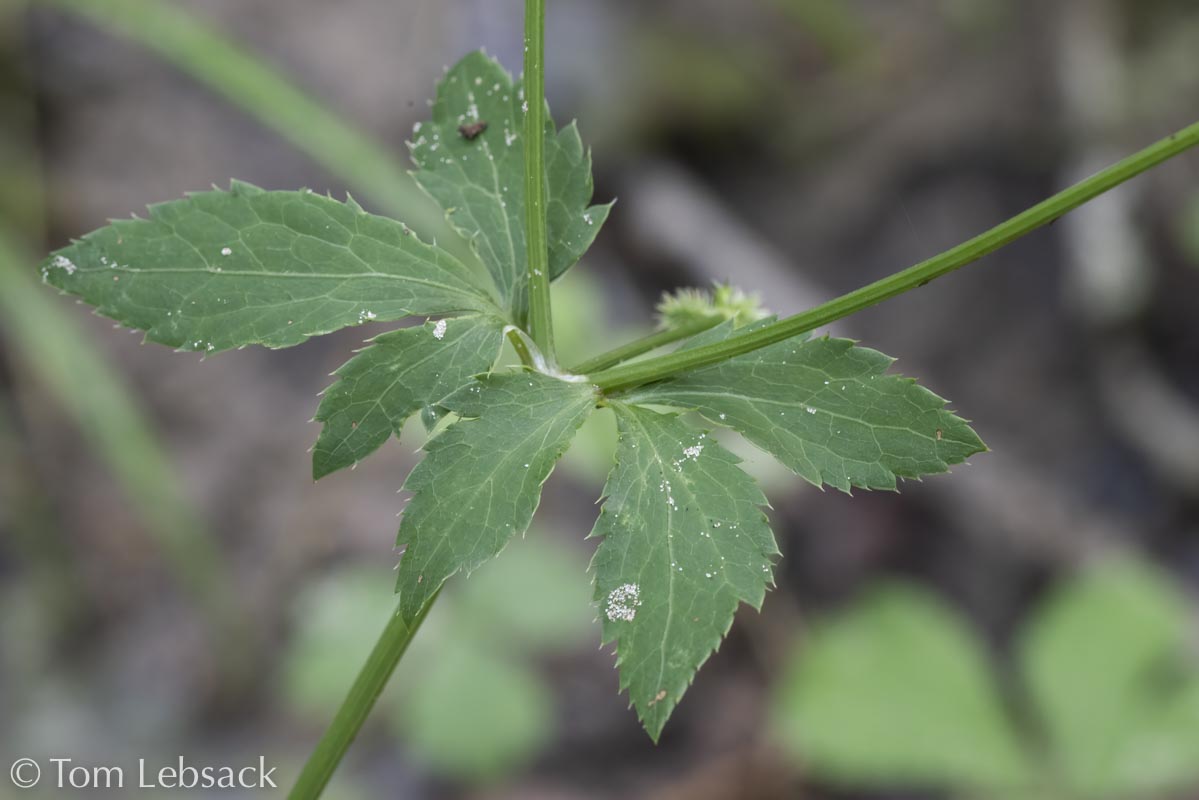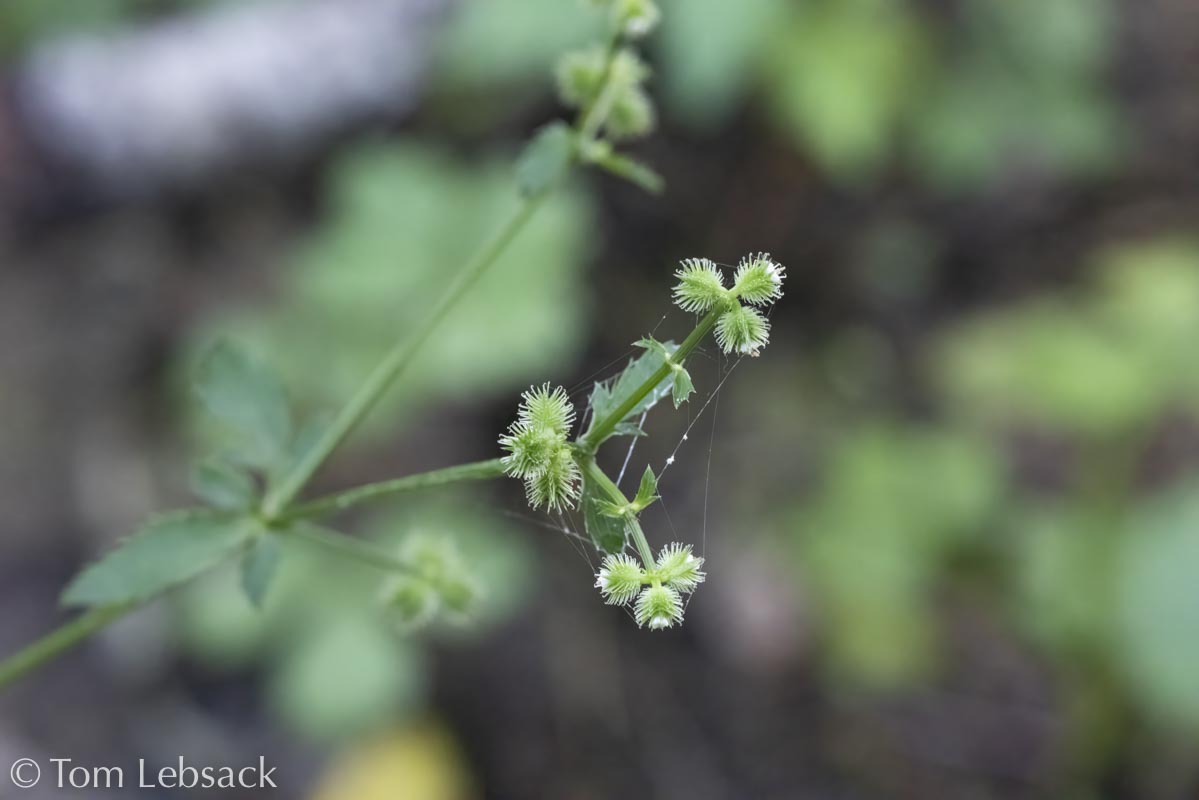Texas Wildbuds
Sanicula canadensis
(Canadian Black-snakeroot)
| Scientific Name | Sanicula canadensis | USDA PLANTS Symbol | SACA15 |
| Common Name | Canadian Black-snakeroot, Canada Sanicle | ITIS Taxonomic Serial No. | 29850 |
| Family | Apiaceae (Parsley) | SEINet Reference |
Click Here |
| Description | Habitat: Seasonally moist (mesic) woodlands and disturbed areas. Plant: Erect biennial with hairless, grooved stems branching in the upper part; 12 ro 40 inches tall. Leaves: Alternate, palmately compound with 3 leaflets (lateral pair may be cleft appearing as 5 leaflets), and are obovate, ovate, or broadly elliptic, sometimes with 1 or 2 additional shallow lobes; leaflets are up to 3 inches long and to 1-1/2 inches wide; edges are coarsely toothed; lower leaves are on long petioles, upper are nearly sessile. Inflorescence: Small umbels or compound umbels of greenish-white flowers, each umbel up to 2-1/2 inches across with 1 to 4 umbellets; each umbellet has a few pistillate (female) flowers and several staminate (male) flowers, all in a tight, roundish cluster; the pistillate flowers are more conspicuous because of their green bur-like ovaries that are ovoid and about 3/16-inch long and covered with hooked prickles; staminate flowers are on a short stalk; each tiny flower (male and female) has 5 white petals and is less than 1/8-inch across. Bloom Period: April to June. References: "Manual of the Vascular Plants of Texas" by Correll and Johnston, Minnesota Wildflowers and Illinois Wildflowers. Note: In these photos staminate flowers are visible in 6353-1 and -2, and pistillate in 6346 and 6463. |
BONAP Distribution Map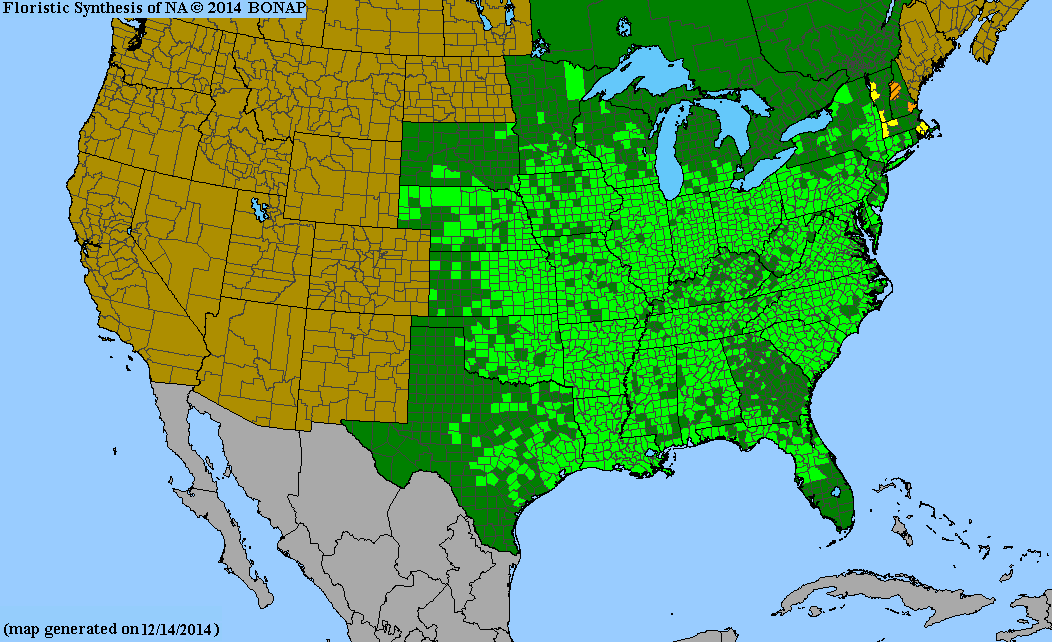 Map Color Key Map Color Key |
Texas Status: Native |
Banner photo of Castilleja indivisa and Lupinus ssp. taken along FM 1323 north of Johnson City, Blanco County
© Tom Lebsack 2025
Every attempt is made to provide accurate, up-to-date, and relevant information, but the completeness or accuracy of any information presented on this website cannot be guaranteed. I use authoritative references to insure high standards of accuracy and review and update the information frequently.
